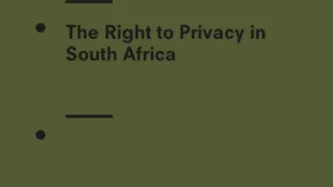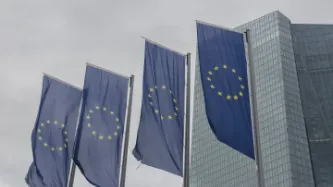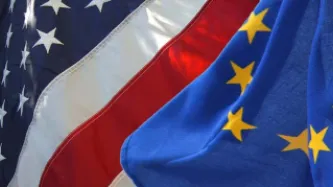Search
Content type: News & Analysis
Este artículo fue co-escrita con Valeria Milanes de la Asociación por los Derechos Civiles (ADC). Una versión en ingles está disponible aquí.
En Enero de 2015, el sistema de inteligencia de Argentina fue objeto de atención pública luego de la muerte del fiscal Alberto Nisman, debido a la presunta participación de los servicios de inteligencia en dicho suceso. Este escándalo impulsó la reforma del sistema de inteligencia del país.
En Febrero del mismo…
Content type: Advocacy
This week, from 17th-20th October 2016, the Kingdom of Morocco will be hosting the 38th International Conference of Data Protection and Privacy Commissioners (ICDPPC).
And two scenarios could play out…
Scenario one — like many other occasions, this will be used as wonderfully strategic PR stunt, whereby participants will be whisked directly from the airport to their hotel to the conference venue, and will be enchanted by the genuinely warm Moroccan hospitality. But they will leave…
Content type: Advocacy
This stakeholder report is a submission by Privacy International (PI) and the Right2Know Campaign (R2K). This report has been prepared with the assistance and research done by the Media Policy and Democracy Project. PI is a human rights organisation that works to advance and promote the right to privacy and fight surveillance around the world. R2K is a broad- based, grassroots campaign formed to champion and defend information rights and promote the free flow of information in South Africa…
Content type: Advocacy
After the adoption of the EU General Data Protection Regulation, the Data Protection Directive for Law Enforcement Agencies, the EU-US Privacy Shield, your understandable EU privacy policy fatigue is excused.
But when a coalition of tech and telecom industries calls for a relatively obscure EU directive to be repealed, it may unintentionally trigger an atypical Streisand effect: if companies, which often so cavalier to individuals’ privacy, want to get rid of the EU e-privacy…
Content type: News & Analysis
The National Privacy Commission has had to firefight a huge leak of voter data in Philippines just one month before the elections
Raymund Liboro, the Philippines’ National Privacy Commissioner, has had a tough few weeks. Barely has his office even existed -- he was appointed in March -- than it is having to firefight what is being reported as the country’s most massive data breach to date. On 27 March, a hacker broke in to the national Commission on Elections (Comelec)’s…
Content type: Press release
The committee of data protection regulators across Europe, the Working Party 29, announced today its opinion on the current “Privacy Shield”. The Opinion is expected shortly, and based on the statements made by the Working Party chair in a press conference, we understand that the Working Party, while noting improvements from the annulled “Safe Harbor” agreement, has serious concerns about a range of aspects of the current "Privacy Shield" agreement with the U.S.
Overall they note the…
Content type: News & Analysis
Should the European Union agree to legitimise trade with a country that refuses to adhere to European legal standards? This is the fundamental question that will be addressed at tomorrow’s meeting among European privacy regulators when they publish their opinion on the data-sharing agreement known as the ‘Privacy Shield’, the replacement to the failed ‘Safe Harbour’ agreement.
Background
Many of the world’s largest companies, such as Google and Facebook, store their customers’ data in…
Content type: News & Analysis
PI's full analysis can be read here
On 29 February 2016, the European Commission and the US government released the details of the proposed EU-U.S. “Privacy Shield”. The “Privacy Shield” replaces the now defunct so-called “Safe Harbor”.
The Privacy Shield is in fact a significant number of documents from various parts of the U.S. administration, which merely outline the existing, weak U.S. safeguards applicable to personal data of EU citizens. These documents are…
Content type: Advocacy
Introduction
On 29 February 2016, the European Commission and the US government released the details of the proposed EU-U.S. “Privacy Shield”. The “Privacy Shield” replaces the now defunct so-called “Safe Harbor”.
The Privacy Shield is in fact a significant number of documents from various parts of the U.S. administration, which merely outline the existing, weak U.S. safeguards applicable to personal data of EU citizens. These documents are meant to serve as the basis for an “adequacy”…







